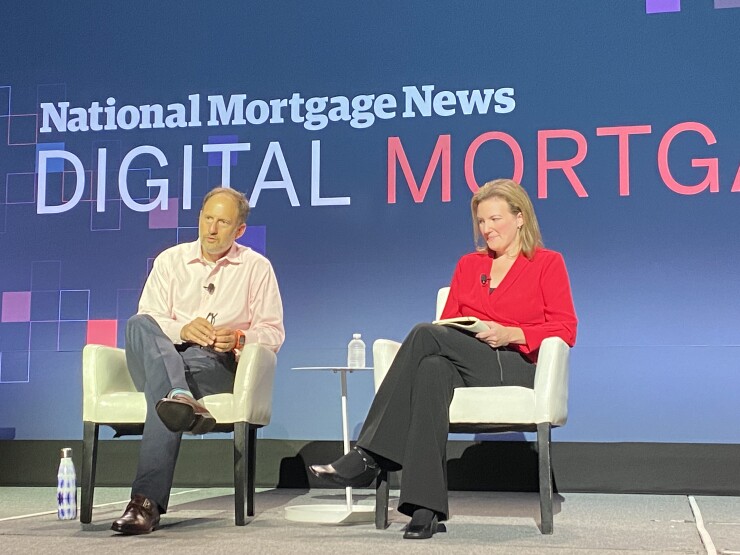Federal regulators exploring the mortgage industry's embrace of technology understand companies' concerns around new potential risks.
Lenders might be hesitant to integrate new solutions from tech like artificial intelligence and blockchain, which mortgage tech players say can increase efficiencies. But the current system, in which loans on average take 45 days to process and
"Let's face it, a lot of people don't get paid a whole lot of money to take these big changes," he said last week at National Mortgage News' Digital Mortgage 2022 conference in Las Vegas. "So we were aware of that. There's also a risk of not advancing some of these technologies. And so we're trying to be more balanced about it."
Cave spoke about the mission of the FHFA's new Office of Financial Technology,
The FHFA office's request for information, with an Oct. 16 deadline, asks mortgage players over a dozen questions around the use of fintech and innovation.
One of those oft-discussed innovations include blockchain, the distributed ledger technology already utilized by mortgage companies. Fintech Figure Technologies earlier this year sold mortgages it originated to an asset management giant
Last fall, Redwood Trust and Liquid Mortgage, which it invested into,
"You can actually use blockchain to reflect information almost instantaneously for parties to see, and utilize potentially to expedite the acquisition process," she said. "Which at the end of the day, particularly for folks in the audience who deal directly with originators, the longer you finance a loan, the more costs you incurred."
Cave suggested blockchain sounds like a value-add for companies.
"The question is, is the juice worth the squeeze?" he said. "How do you put something like that on legacy systems? FHFA, our view is we're open to looking at everything."
The office also won't disregard greater adoption of existing technologies to improve innovation, Cave said, without describing a specific example. In gathering information, regulators have been attending "tech sprints" to assess numerous solutions at once while Cave said he has an open door policy in speaking with stakeholders.
Licensing and "sandboxes" for tech demos aren't part of the office's mission, and the FHFA isn't working alongside other regulators like the Consumer Financial Protection Bureau in this effort, Cave said. Success won't be measured by major immediate enforcements, either.
"It's not going to be like a big ban, we're getting rid of all that and it's blockchain," he said. "I shouldn't say we're not, but I wouldn't see it going that way. I think this would be very incremental, make sure we learn."





